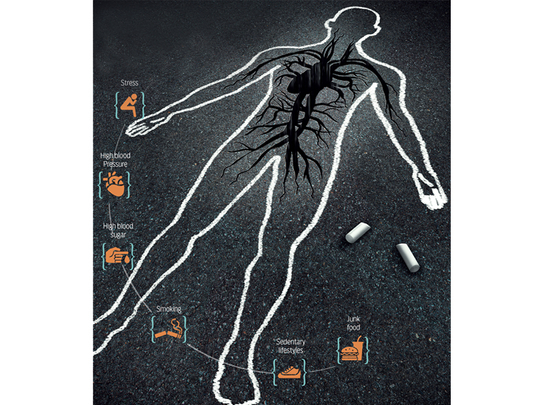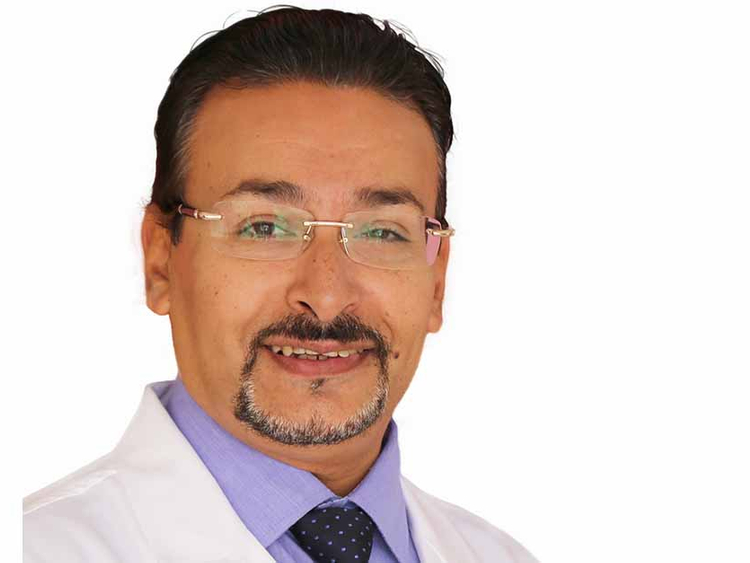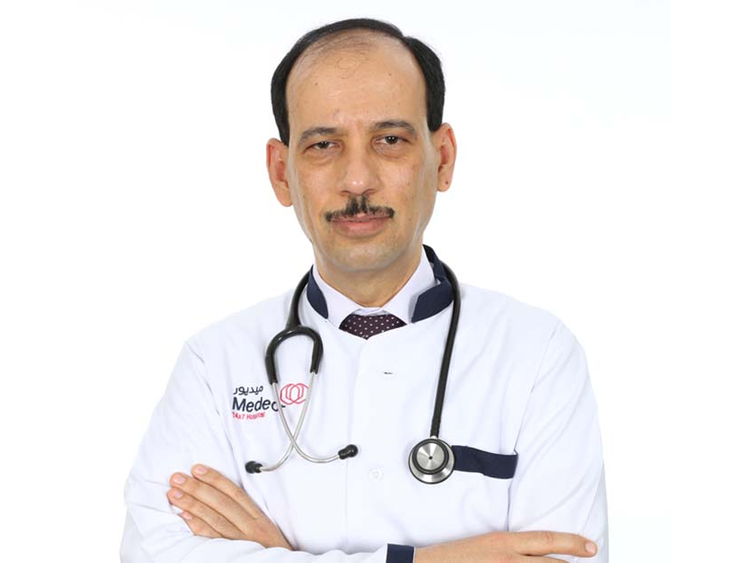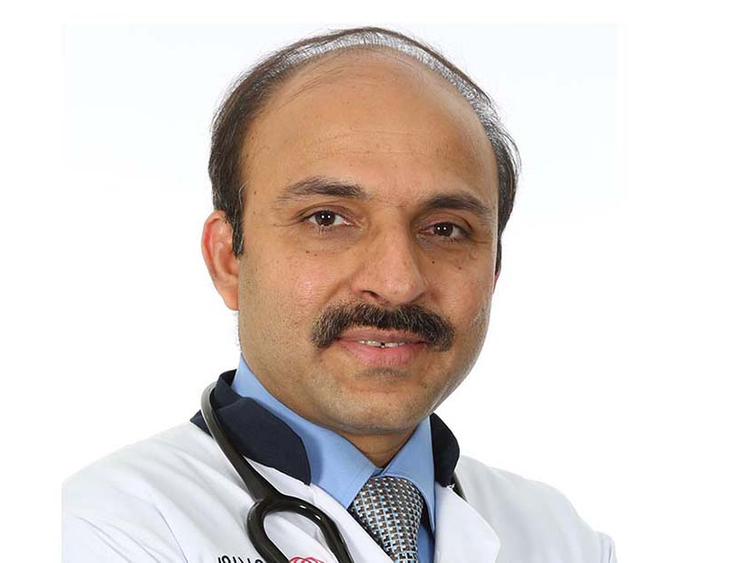
At 38, Alaa Aldin Tahineh doesn’t fit the profile of the typical heart disease patient. But he’s representative of a new category of ever younger residents hit by cardiovascular problems.
“I got diagnosed because I was experiencing symptoms such as severe heart pain and breathing difficulties,” he says. “I was shocked, but Alhamdulillah.”
The Syrian national has recently been treated for heart disease at Abu Dhabi’s Burjeel Hospital. Now on the road to recover, Tahineh has a few watchwords for those who want to prevent what he thinks is unnecessary — and avoidable — health trauma.
“My advice for people is to quit smoking and exercise,” he says, adding that a healthy lifestyle is the best way to prevent heart problems.
Doctors across the UAE say they are seeing more and more younger people suffering from heart attacks and cardiovascular diseases due to stress, smoking, obesity and a lack of exercise.
“We see patients under 35 with severe heart problems. I had seen a patient below 30 years old with severe rheumatic valve disease. This is common among those coming from rural areas in Egypt, Syria, Pakistan and India,” says Dr Walid Shaker, Consultant and Cardiothoracic Surgeon at Burjeel Hospital, Abu Dhabi. He and his colleagues have noticed that patients with severe heart problems are about 15 years younger in the UAE compared to the rest of the world — except possibly North America.
“A major cause of this paradigm shift is the significant change in people’s lifestyle given the highly competitive, ultra-aggressive, and extremely fast modern lifestyle,” he says.
High stress
And stress is the biggest risk factor. “Now, people are facing more challenges and greater stress than our great-grandparents because of greater economic demands and faster pace in life,” he says. “So the heart — which is the main engine of the body — gets exhausted faster than ever before.”
Dr Dinesh Babu, Consultant Cardiologist at Medeor 24x7 Hospital, agrees. “There is some kind of stress related to all professions. Long working hours obviously add to the stress. When it builds up over a continuous period of time, it leads to all kind of health problems such as overweightedness, neck and back pain, and emotional issues such as depression.”
Dr Babu says despite widespread awareness and access to diagnostic tests, many suffer from heart attacks. The disease, he adds, can strike many in their prime of life. “The risk factors for heart disease can be classified broadly as behavioural and biological factors.
“While the behavioral factors can be linked to sedentary lifestyle, poor nutrition and stress, the biological factors evolve in the later stage in the form of high cholesterol, type 2 diabetes, high blood pressure and obesity.”
The World Health Organisation (WHO) says 50 per cent of cardiovascular disease patients in some Gulf countries die before the age of 60 due to poor diet, lack of exercise and inappropriate self-care. “The UAE is comparable to North American examples in terms of obesity, diabetes, and cardiovascular conditions,” adds Dr Shaker.
Bad food
Unhealthy food choices — including eating processed foods, or calorific ones rich in carbohydrates, sugar and fat — are also a high risk factor for heart disease. “These bad fats accumulate on the walls of the vessels and start to slowly block the vessels,” says Dr Shaker, adding that few people burn off such fat through adequate exercise. “Lack of exercise, combined with unhealthy eating habits, prevent burning of excess calories and bad fats.”
Smoking, the growing rate of obesity, neglected and untreated hypertension, the increasing incidence of type 2 diabetes in the region and a family history of hypercholesterolemia (high cholesterol) are among the other factors, adds Dr Shaker.
Early detection
Dr Mohammad Rahi Al Hasnawi, Cardiology Specialist at Medeor 24x7 Hospital, says early detection of heart problems can help prevent more serious cardiovascular issues. “Almost 50 per cent of my patients neglect early screening and complain of heart attack symptoms. The symptoms are not always evident before the complications set in. For instance, a person with hypertension should watch out for being short of breath, severe headache and chest pain.”
Dr Al Hasnawi says there are simple measures people can do to protect their health. Quitting tobacco for good, cutting sugar and salt intake and exercise are highly ranked on the World Heart Federation’s list of preferred lifestyle choices, he says.
“It’s the small things that make you not only healthier but also make you feel good and able to enjoy your life to the fullest. It is up to us to reduce the modifiable risk factors.
“For most survivors, heart disease was the last thing in their mind. They were lucky to get their disease found on time. Others, who go for months or years without their symptoms being diagnosed, face fatal heart attacks.”















